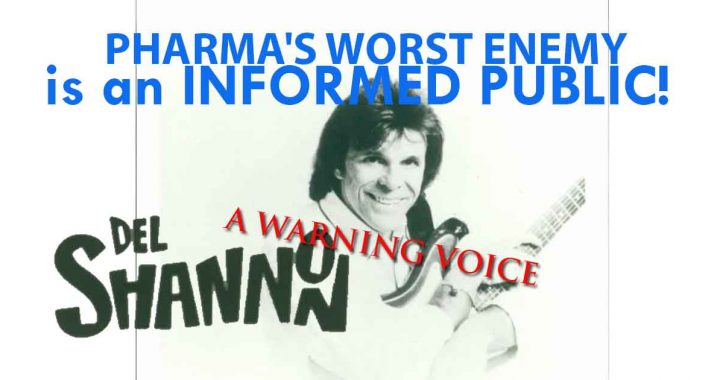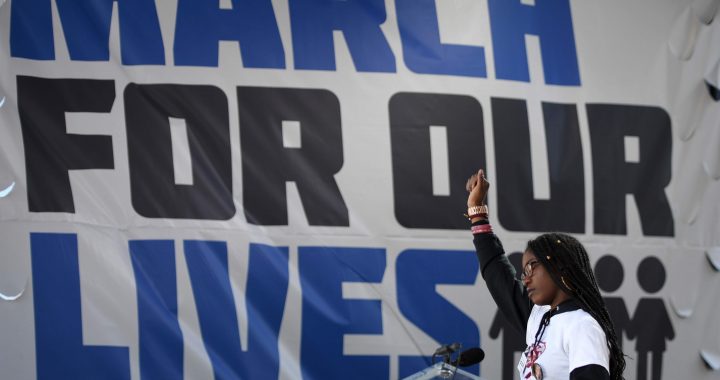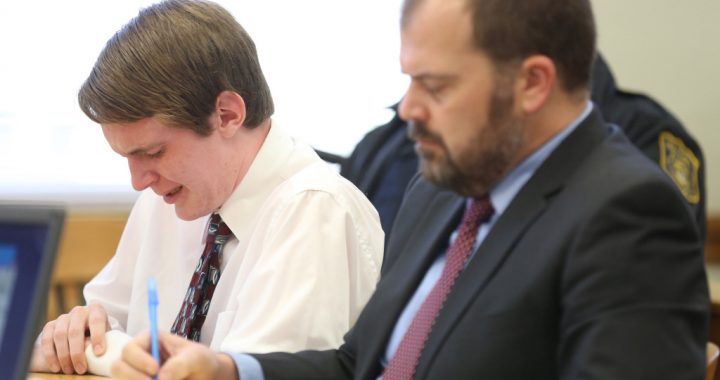
Jo Thompson
…ended up in hospital on anti-anxiety pills, and wanted to die when she stopped them Photo: Geoff Pugh/Telegraph
JO EXPLAINS HOW ANTIDEPRESSANTS PRODUCE HAPPINESS: Miss Thompson is still suffering. “Three years have passed, but the ringing in my ears has never gone away and I’m so much more anxious than previously about things that would never have once concerned me. But once you’ve survived withdrawal, you are just glad to be alive.”
This whole scenario is like watching happen in the UK with antidepressants what has been happening in the US for the past two and a half decades….
The Telegraph: Lives ‘left in ruin’ by rising tide of depression drugs
More people are being put on the pills but some experts are now warning they do more harm than good. Julia Llewellyn Smith reports
By Julia Llewellyn Smith
7:00AM BST 27 Apr 2014
Twenty years ago, Henry was living a fulfilled life. A happily married father from the Home Counties, his sales career was going well, he had a wide social circle and played football and golf regularly. “I was a conservative, head-down, career-minded person who enjoyed my life,” he says.
But in 1995, a bout of flu left Henry, then 31, exhausted and lethargic. He visited his GP, who told him he was depressed, and prescribed the world’s most popular antidepressant, Prozac. “Everything appeared completely benign — he said depression was a common complaint, the drugs would fix it and then I’d stop taking them.”
No Improvement But Could Not Get Off the Drug
More than a decade later, Henry was far from cured and still taking antidepressants. “None of the drugs I was prescribed made me feel better, and most made me considerably worse. But every time I stopped them, the symptoms of what I thought was depression — but now know were of withdrawal — returned even more strongly, so I went back to the pills.”
By 2009, he was so unwell that he had to give up work. Finally, suspecting the drugs were the cause of his problems, he quit them, only to enter a new hell.
“It was torture. I thought I was going to die, and I didn’t care. For two years, I was in severe physical pain and so weak I lay all day on the sofa. My cognition was severely affected, I was dizzy, with blurred vision, I couldn’t read a bedtime story to my son and couldn’t remember things that had happened just a few seconds previously.”
Henry — who does not want to reveal his last name because of pending legal action against the drugs manufacturers — is just one of an estimated four million people in Britain taking antidepressants, a number that is rising sharply.
UK Antidepressant Prescriptions: 1 in 3 Women, 1 in 10 Men
Last year, 53?million prescriptions were issued for antidepressants in England alone, nearly double the number prescribed a decade ago, and a six per cent increase in the past year. According to recent research, one in three British women and one in 10 men now take the medication, including popular brands such as Prozac, Cipramil [Celexa] and Seroxat [Paxil], at some point in their lives.
But a growing number of experts now believe depression is vastly overdiagnosed and the drugs can cause far more harm than good.
This week, a new organisation, the Council for Evidence-Based Psychiatry (CEP), whose members include psychiatrists, academics and withdrawal charities, is launching, to educate the public about the risks of antidepressants. A keynote speech will be given by Prof Peter Gøtzsche, co-founder of the Cochrane Collaboration, an international, non-profit organisation that examines vast amounts of medical data to help doctors and patients reach informed conclusions about health.
Prof Gøtzsche, author of Deadly Medicines and Organised Crime: How Big Pharma has Corrupted Healthcare, believes that some drug companies have obfuscated the truth about antidepressants, much as tobacco firms attempted to hide the dangers of cigarettes.
Antidepressants Help Very Few People
“My research has led me to the uncomfortable conclusions that these drugs help very few people. They are often being taken needlessly and, in many cases, ruining lives.
“GPs and psychiatrists hand out these drugs for the most unbelievable reasons — when patients are having marital problems, have failed exams, split up with their boyfriends — occasions that would make anyone feel sad and stressed but don’t indicate clinical depression.
“In such cases, and also in truly depressed patients, the patients will feel better anyway with the passing of time, but doctors and patients attribute their recovery to the antidepressants. When they stop the drugs, withdrawal symptoms will often make them feel bad. This is often misdiagnosed as the depression not being cured, so they are told to continue taking the pills, sometimes for life.”
Jo Thompson, 31, an NHS researcher, was prescribed antidepressants three years ago for anxiety about her university final exams. “What I was going through — worrying about the future and choices I was making — was completely normal, in retrospect,” she says.
Her GP wrote her a prescription for lorazepam, a potent benzodiazepine or anti-anxiety drug, which are currently in vogue, with 16.5?million being prescribed in the UK last year, and to which around one million people are thought to be “accidentally” addicted — compared with 300,000 illegal heroin and crack cocaine addicts.
Miss Thompson took the pills but rather than feeling calmer, she went “through the roof”. “Within days, normal life became unmanageable,” she says. “I stopped eating. I’m a very sociable person but I became a hermit. Any sudden sensation terrified me, to the point where I daren’t step into the shower, so I stopped washing. I thought I was going mad.
“In my naivety, it never occurred to me that they might be the drugs’ side effects. They had been given to me by a doctor to make me better, so how could they be making things considerably worse?”
Miss Thompson ended up in hospital. “I was a shivering shell, not sleeping at all,” she says. Increasingly concerned at doctors’ insistence on trying different antidepressants and upping doses, she discharged herself and decided to stop the drugs overnight. As with Henry, and 72 per cent of antidepressant users surveyed by CEP, doctors had given her no warning about the dangers of “cold turkey” withdrawal from benzodiazepines.
“I had no idea of the horrors that awaited me. Every second of the day was hell. I was a zombie, but one that couldn’t sit down. I just paced up and down, and asked my parents if I was going to die. I couldn’t be left alone. In the car, I was overwhelmed with the urge to throw myself out on to the motorway.”
When Miss Thompson later tackled her GP about his lack of advice, he became very defensive. “He just mumbled about not having any training,” she says.
During his time as an NHS psychotherapist, Dr James Davies, co-founder of CEP, was amazed at how freely antidepressants were handed out. “People were being medicated entirely unnecessarily, when they weren’t suffering from mental-health disorders but from understandable, sometimes even necessary, human experience.”
Although official advice is to prescribe antidepressants in conjunction with counselling, in practice long waiting lists mean this rarely happens.
“It’s cheaper and quicker to prescribe antidepressants than investigate the root cause of sadness,” says Dr Davies. “The other problem is mental health practitioners aren’t introduced during training to the growing body of critical research on the drugs.”
WHO Warns Antidepressant Use “Through the Roof”
Antidepressants enjoy global popularity (the World Health Organisation recently warned that antidepressant use in many countries had gone “through the roof”, with one in 10 people in Iceland taking the drugs), but they were invented only by accident, when scientists searching for a tuberculosis cure noticed, in 1952, that sick people became more cheerful after taking the anti-infection drugs they were developing.
Sylvia Plath’s Antidepressant-Induced Suicide
No one understood how the drugs worked, but since mental illnesses were usually tackled through partial lobotomies, brain injections or the electroshock treatment recorded by Sylvia Plath in The Bell Jar, a straightforward pill was hugely appealing. [Keep in mind that Sylvia Plath killed herself on an antidepressant and her husband and biographer both blamed the drug for the suicide. http://www.theguardian.com/books/2001/aug/08/artsandhumanities.highereducation ]
Over the following decades, drug companies explained that depression was caused by a chemical imbalance that drugs could cure. But this theory has never been proven. “These drugs create a chemical imbalance, which is why it is so difficult for patients to get off them,” says Prof Gøtzsche.
Little Evidence Antidepressants Help, Instead Do Harm
In fact, he says, there’s little evidence that antidepressants help anyone. “In cases of mild depression, their effect is small. Nice [the National Institute for Health and Care Excellence] recommends that antidepressants are not routinely prescribed for people with mild depression. But even in severe cases, research shows only 10 per cent of people will feel better than if they used a placebo.
“Some people ask me if I’m worried that by pointing this out people will decide to come off their drugs and become very ill,” he continues. “But I’m not afraid of that, provided patients taper off their drug slowly in collaboration with their doctor. What I’m afraid of is the harm being done to so many healthy people.
“Furthermore, there are case reports in patients and controlled experiments on animals that suggest that the drugs could perhaps cause permanent brain damage; we are currently studying this.”
Miss Thompson is still suffering. “Three years have passed, but the ringing in my ears has never gone away and I’m so much more anxious than previously about things that would never have once concerned me. But once you’ve survived withdrawal, you are just glad to be alive.”
Nine years after he began withdrawal, Henry estimates he is only 80 per cent better and has just returned to work.
“Last year, a psychiatrist told me it’s unlikely I ever had depression at all, I was just run down and needed rest. Because I innocently accepted my GP’s diagnosis, I’ve lost 20 years of my life,” he says.
Original Article: http://www.telegraph.co.uk/news/features/10789916/Lives-left-in-ruin-by-rising-tide-of-depression-drugs.html
Ann Blake Tracy, Executive Director,
International Coalition for Drug Awareness
www.drugawareness.org & http://ssristories.drugawareness.org
Author: ”Prozac: Panacea or Pandora? – Our Serotonin Nightmare – The Complete Truth of the Full Impact of Antidepressants Upon Us & Our World” & Withdrawal CD “Help! I Can’t Get Off My Antidepressant!”
WITHDRAWAL WARNING: In sharing this information about adverse reactions to antidepressants I always recommend that you also give reference to my CD on safe withdrawal, Help! I Can’t Get Off My Antidepressant!, so that we do not have more people dropping off these drugs too quickly – a move which I have warned from the beginning can be even more dangerous than staying on the drugs!
WITHDRAWAL HELP: You can find the hour and a half long CD on safe and effective withdrawal helps here: http://store.drugawareness.org/ And if you need additional consultations with Ann Blake-Tracy, you can book one at www.drugawareness.org or sign up for one of the memberships for the International Coalition for Drug Awareness which includes free consultations as one of the benefits of that particular membership plan.





